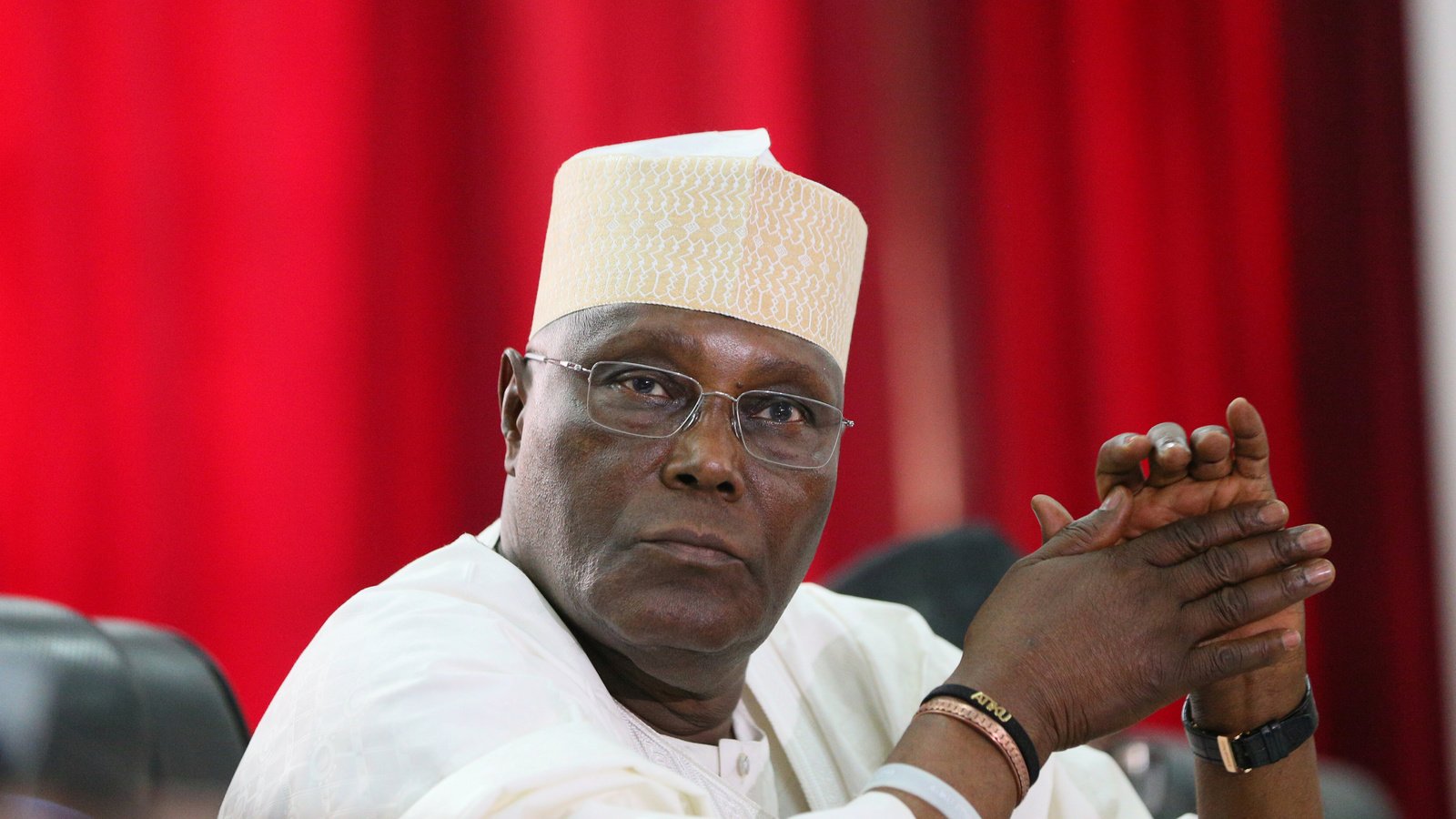Politics
2023: Is Atiku a Nigerian or not? Court fixes Feb 21 to decide

The judgement on the citizenship of Atiku Abubakar, Nigerian former vice president and 2019 presidential candidate of the Peoples Democratic Party (PDP) has been slated for February 21, 2022, by the Federal High Court, Abuja.
Atiku was sued by a group under the aegis of the Incorporated Trustees of Egalitarian Mission for Africa. The group in the suit marked FHC/ABJ/CS/177 posed three legal questions for the determination of the court.
It asked the court to determine; “Whether section 25 of the Constitution of the Federal Republic of Nigeria, 1999 (as amended), is the sole authority that spells out ways by which a person can become a Nigerian citizen by birth?
“Whether by the provisions of section 131(a) of the Constitution of the Federal Republic of Nigeria, 1999 (as amended), only a Nigeria citizen by birth can contest for the office of the President of the Federal Republic of Nigeria?
It also asked, “Whether by the combined interpretation of section 25(1) & (2) and 131(a) of the Constitution of the Federal Republic of Nigeria, 1999 (as amended), and giving the circumstances surrounding the birth of the 1st Defendant (Atiku), he can be cleared by the 2nd and 3rd Defendants to contest for the office of the President of the Federal Republic of Nigeria?.
Upon determination of the questions, the Plaintiff applied for a declaration that by the provisions of the Constitution, “only a Nigerian citizen by birth can contest for the office of the President of the Federal Republic of Nigeria.
It urged the court to declare that giving the circumstances surrounding Atiku’s birth, he cannot be cleared by either PDP or the Independent National Electoral Commission, INEC, to vie for Presidency.
The Plaintiff, which told the court that it is a Non-governmental Organization that is duly registered in 13 African countries, argued that Atiku is not a Nigerian by birth and thus not eligible to contest to become the President of Nigeria.
It told the court that it has specific concerns for promoting the principles of equality, rule of law and human rights in Africa generally, but with particular interest in Nigeria.
In a 12-paragraphed affidavit deposed to by one Michael Okejimi, the Plaintiff, noted that Atiku was born on December 25, 1946.
It said the 1st Defendant had in his own testimony that was gazetted and published in most national dailies, stated that he is from Jada town in Adamawa State.
“Jada used to be in Ganye Local Government Area in Adamawa. That Ganye is regarded as the mother of the whole Chamba tribe.
“That Ganye, however, was never part of Nigeria legally as at the date of birth of the 1st Defendant. That the area had been entrusted to Britain by a League of Nations mandate in 1919 and later as Trust Territory by the United Nations in 1946.
“That the defeat of Germany in World War 1, Cameroon became a League of Nations mandate territory and was split into French Cameroons and British Cameroons in 1919.
“That while France integrated the economy of their part of Cameroon with that of France, the British, administered theirs from neighboring Nigeria, making 1st Defendant’s Jada a British franchise.
“That a plebiscite was held in British Cameroons to determine whether the people preferred to stay in Cameroon or align with Nigeria.
“That while Northern Cameroon preferred a union with Nigeria, Southern Cameroon chose alignment with the mother country.
“That on June 1, 1961, Northern Cameroon became part of Nigeria, and on October 1, 1961, the Southern territory dissolved into Cameroon.
“That Ganye, which incorporates the 1st Defendant’s birthplace of Jada was the headquarters of British Cameroons, but it joined Nigeria following the plebiscite.
“That when the 1st Defendant was on November 25, 1946, born to a Fulani trader and farmer, Garba Abubakar, Jada village and other parts of Chamba land in the then Northern Cameroon, were still known as British Cameroon.
“That none of the 1st Defendant’s parents or grandparents was born in Nigeria. That the 1st Defendant’s father died a citizen of Northern Cameroon in 1957 prior the referendum of June 1, 1961, that made Northern Cameroon became part of Nigeria.
“That the 1st Defendant’s ancestral origin is deeply rooted in the then Northern Cameroon. That the 1st Defendant is not a Nigerian citizen by birth.
“That the 1st Defendant is not qualified to be elected into the office of the President of the Federal Republic of Nigeria”, the Plaintiff added.






